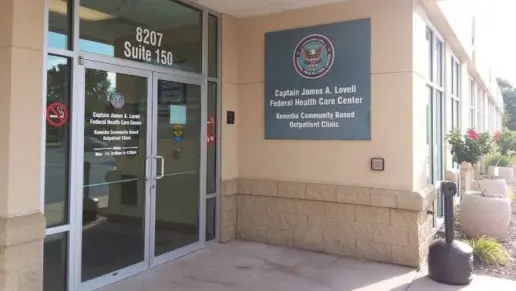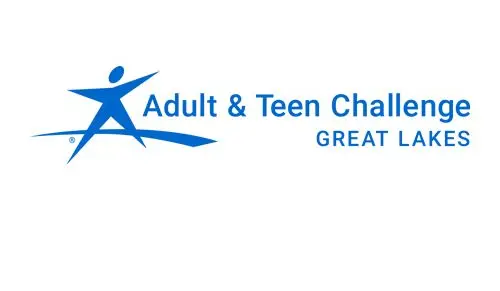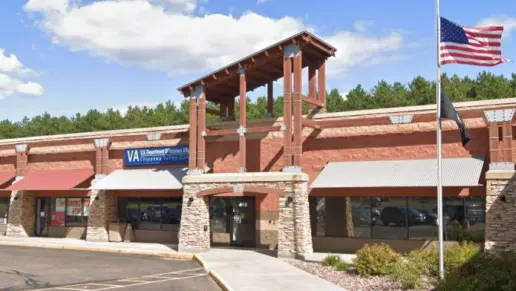About West Milwaukee Comprehensive Treatment Center
West Milwaukee Comprehensive Treatment Center is an outpatient treatment center for adults 18 and up. They’re located on Miller Parkway West in Milwaukee, Wisconsin. They specialize in the treatment of opioid use disorder through medication assisted treatment (MAT) and also offer behavioral health services for co-occurring mental health disorders. They accept many different types of payment including commercial insurance, TRICARE, Veterans Affairs, Medicaid and Medicare.
West Milwaukee Comprehensive Treatment Center is an outpatient treatment center for adults 18 and up. They’re located on Miller Parkway West in Milwaukee, Wisconsin. They specialize in the treatment of opioid use disorder through medication assisted treatment (MAT) and also offer behavioral health services for co-occurring mental health disorders. They accept many different types of payment including commercial insurance, TRICARE, Veterans Affairs, Medicaid and Medicare.
Some people with opioid disorders worry that MAT may switch one addiction to another, but that’s not the case. MAT is an evidence based treatment that can help you achieve long term recovery from your opioid addiction. MAT also reduces your risk of relapsing.
The center offers several types of MAT. These include naltrexone, methadone, buprenorphine and Suboxone. You’ll start with a thorough assessment to determine which medication is suited to your situation. You’ll be able to get admitted to the program on the same day you go for your assessment, and they have around the clock scheduling seven days a week.
There’s also a therapeutic element to the program that’s important to achieving and maintaining your sobriety. You’ll work with a counselor in individual sessions to help you identify the reasons you began using substances. For many people, a co-occurring mental health disorder led to self medicating with drugs. Other people had injuries that led to opioid use to alleviate pain. There are many reasons people turn to drug use. Identifying the root cause of your substance use helps you learn better coping skills to avoid using substances in the future.
You’ll also work in group sessions. Group therapy puts you with other adults working toward their recovery. You’ll support each other and develop friendships with people who understand what you’re going through.
If you need MAT treatment and outpatient therapy for an opioid addiction, this treatment center may be a good choice for you. Former patients mentioned that the staff is friendly and the counselors are caring.
Latest Reviews
Rehab Score
Gallery
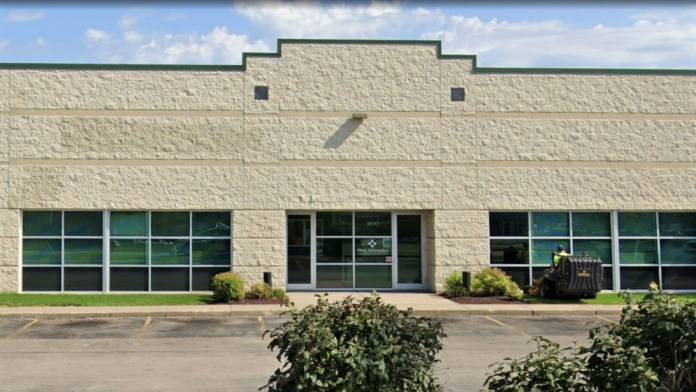
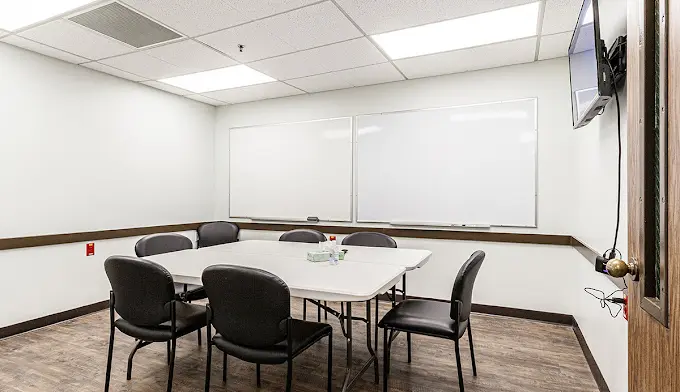
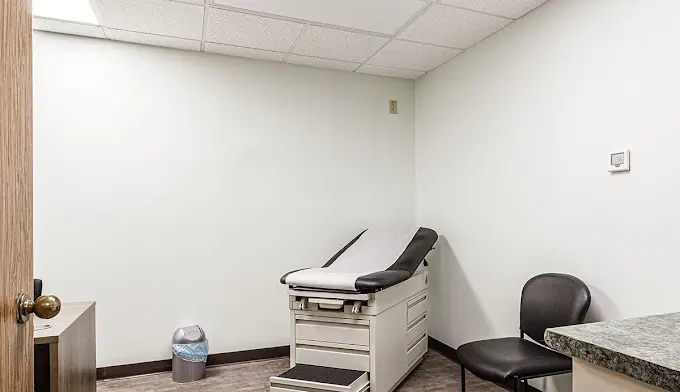
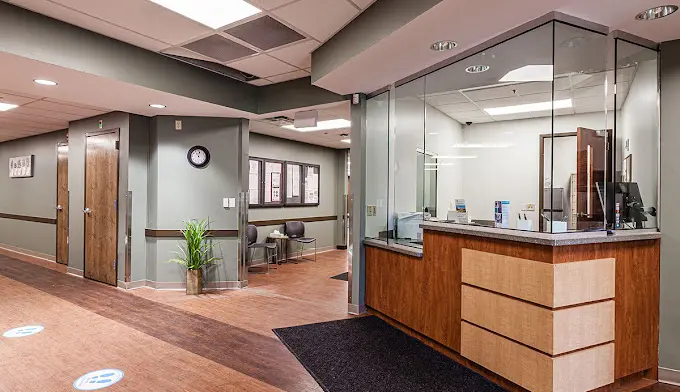
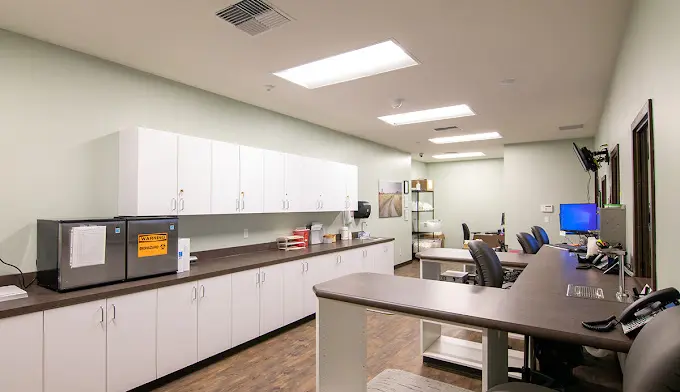
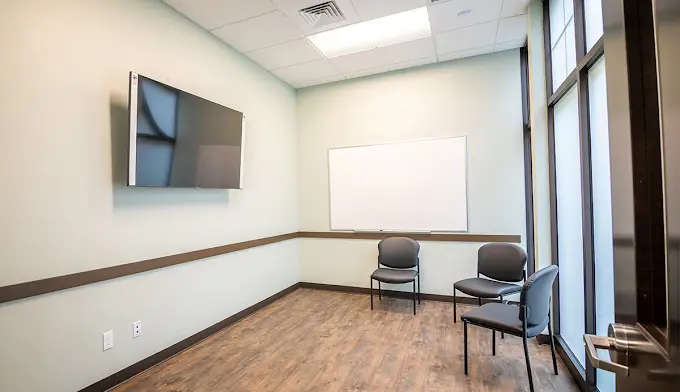
Location
Other Forms of Payment
Private insurance refers to any kind of healthcare coverage that isn't from the state or federal government. This includes individual and family plans offered by an employer or purchased from the Insurance Marketplace. Every plan will have different requirements and out of pocket costs so be sure to get the full details before you start treatment.
Self-pay involves paying for treatment out of your own pocket. You can use savings or credit, get a personal loan, or receive help from family and friends to fund your treatment. If you don't have insurance or your insurance plan doesn't cover a specific program, self-pay can help ensure you still get the care you need.
Financial aid can take many forms. Centers may have grants or scholarships available to clients who meet eligibility requirements. Programs that receive SAMHSA grants may have financial aid available for those who need treatment as well. Grants and scholarships can help you pai for treatment without having to repay.
Medicare is a federal program that provides health insurance for those 65 and older. It also serves people under 65 with chronic and disabling health challenges. To use Medicare for addiction treatment you need to find a program that accepts Medicare and is in network with your plan. Out of pocket costs and preauthorization requirements vary, so always check with your provider.
Medicaid is a state based program that helps lower-income individuals and families pay for healthcare. Medicaid covers addiction treatment so those enrolled can use their coverage to pay for rehab. When a program accepts Medicaid the client often pays very little or nothing out of their own pocket.
Military members, veterans, and eligible dependents have access to specific insurance programs that help them get the care they need. TRICARE and VA insurance can help you access low cost or no cost addiction and mental health treatment. Programs that accept military insurance often have targeted treatment focused on the unique challenges military members, veterans, and their families face.
Addiction Treatments
Levels of Care
Treatments
Substance rehabs focus on helping individuals recover from substance abuse, including alcohol and drug addiction (both illegal and prescription drugs). They often include the opportunity to engage in both individual as well as group therapy.
Programs



Clinical Services
As a form of substance use treatment, cognitive behavioral therapy in Wisconsin offers several advantages. The duration of this talk therapy is typically 20 sessions or less, so it can be more affordable, with quicker results. It's also offered in multiple formats, so it can be tailored to meet individual needs.
The word dialectical describes the foundation of dialectical behavior therapy (DBT). Meaning "opposite," the word refers to the treatment's focus on both acceptance and change. While learning to accept where you are and the emotions you're feeling, you also learn to grow and change to establish healthier patterns in your life.
Group therapy is any therapeutic work that happens in a group (not one-on-one). There are a number of different group therapy modalities, including support groups, experiential therapy, psycho-education, and more. Group therapy involves treatment as well as processing interaction between group members.
In individual therapy, a patient meets one-on-one with a trained psychologist or counselor. Therapy is a pivotal part of effective substance abuse treatment, as it often covers root causes of addiction, including challenges faced by the patient in their social, family, and work/school life.
When conducting motivational interviewing in Wisconsin, therapists engage with their clients as equal partners. They don't provide unsolicited advice or confront clients. Instead, they ask questions and listen, with the goal of empowering clients to recognize any need for change and their ability to make those changes.
Addiction treatment in Wisconsin emphasizes life skills training to help you relearn critical capabilities for day to day life. This training helps you build healthy, positive strategies for everything from self care, to career, to interpersonal relationships.
Amenities
-
Residential Setting
-
Private Rooms
Accreditations

The Commission on Accreditation of Rehabilitation Facilities (CARF) is a non-profit organization that specifically accredits rehab organizations. Founded in 1966, CARF's, mission is to help service providers like rehab facilities maintain high standards of care.
CARF Accreditation: Yes

State Licenses are permits issued by government agencies that allow rehab organizations to conduct business legally within a certain geographical area. Typically, the kind of program a rehab facility offers, along with its physical location, determines which licenses are required to operate legally.
State License: Wisconsin
Contact Information
1610 Miller Parkway West
Milwaukee, WI 53214
